
Ruti de Vries
Orchestral Chaos
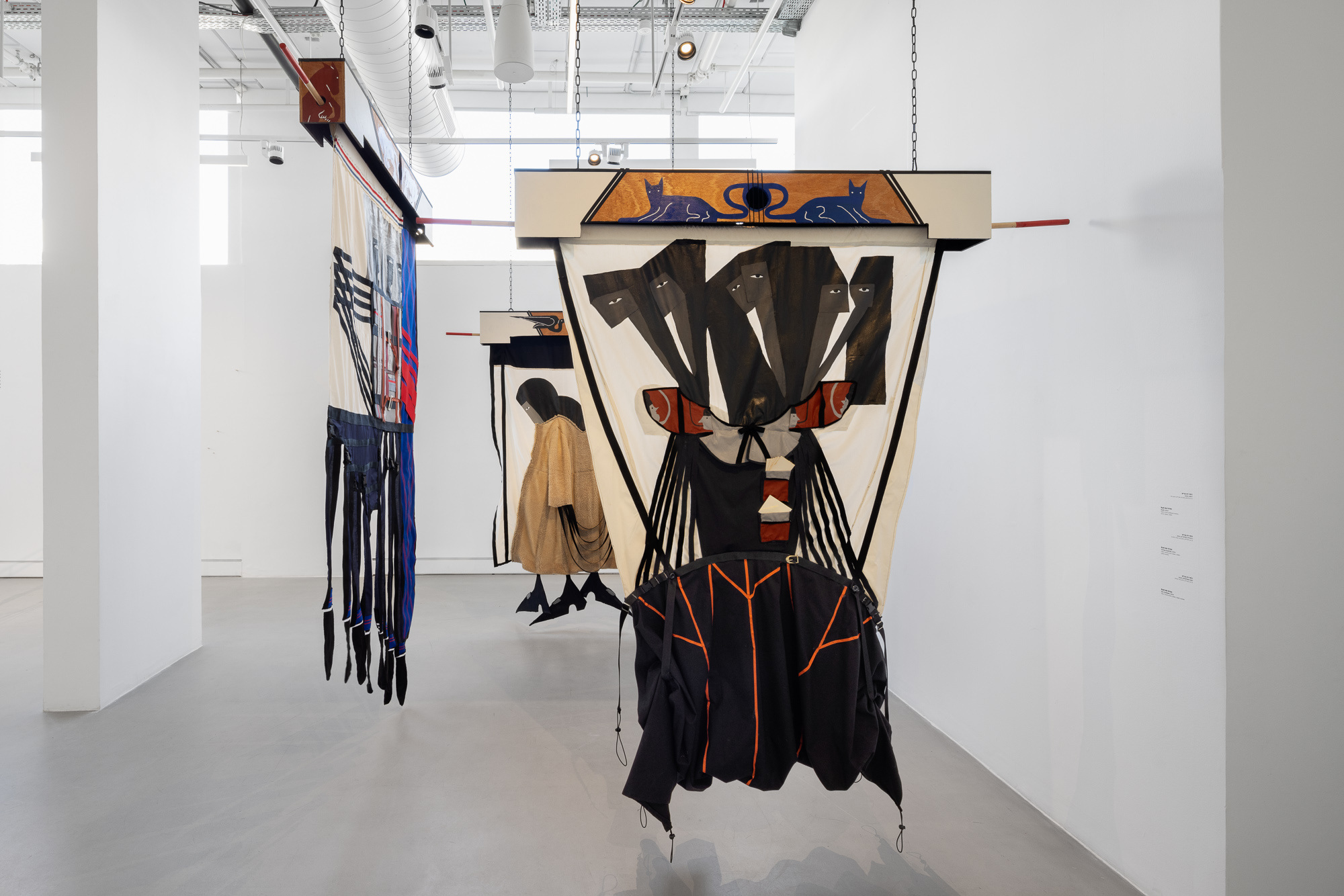
Six Cymbals, 2024, Fabric, wood, acrylic, zipper, rubber, buckles, 220X150 X15 cm
Advertisement
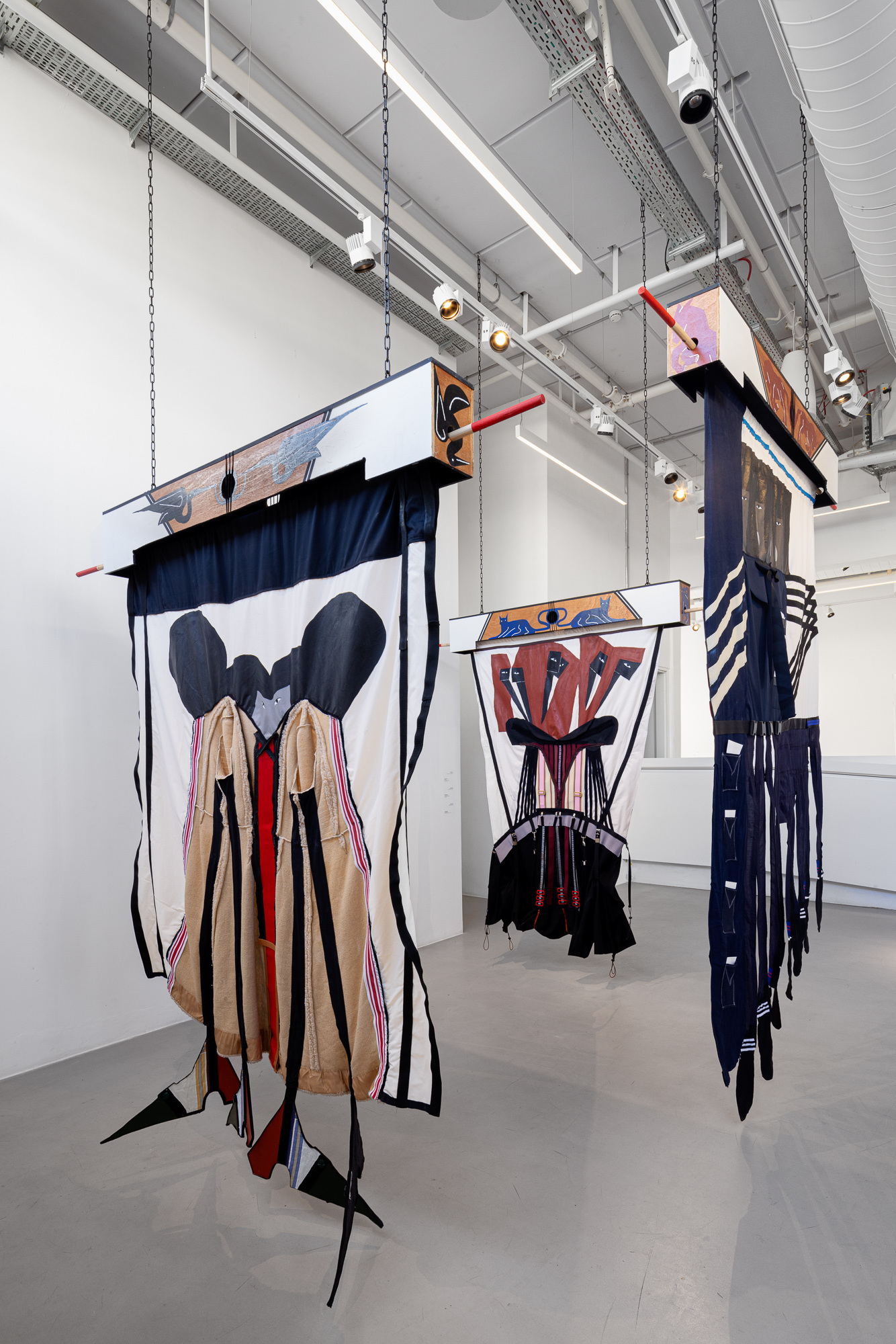
Installation View
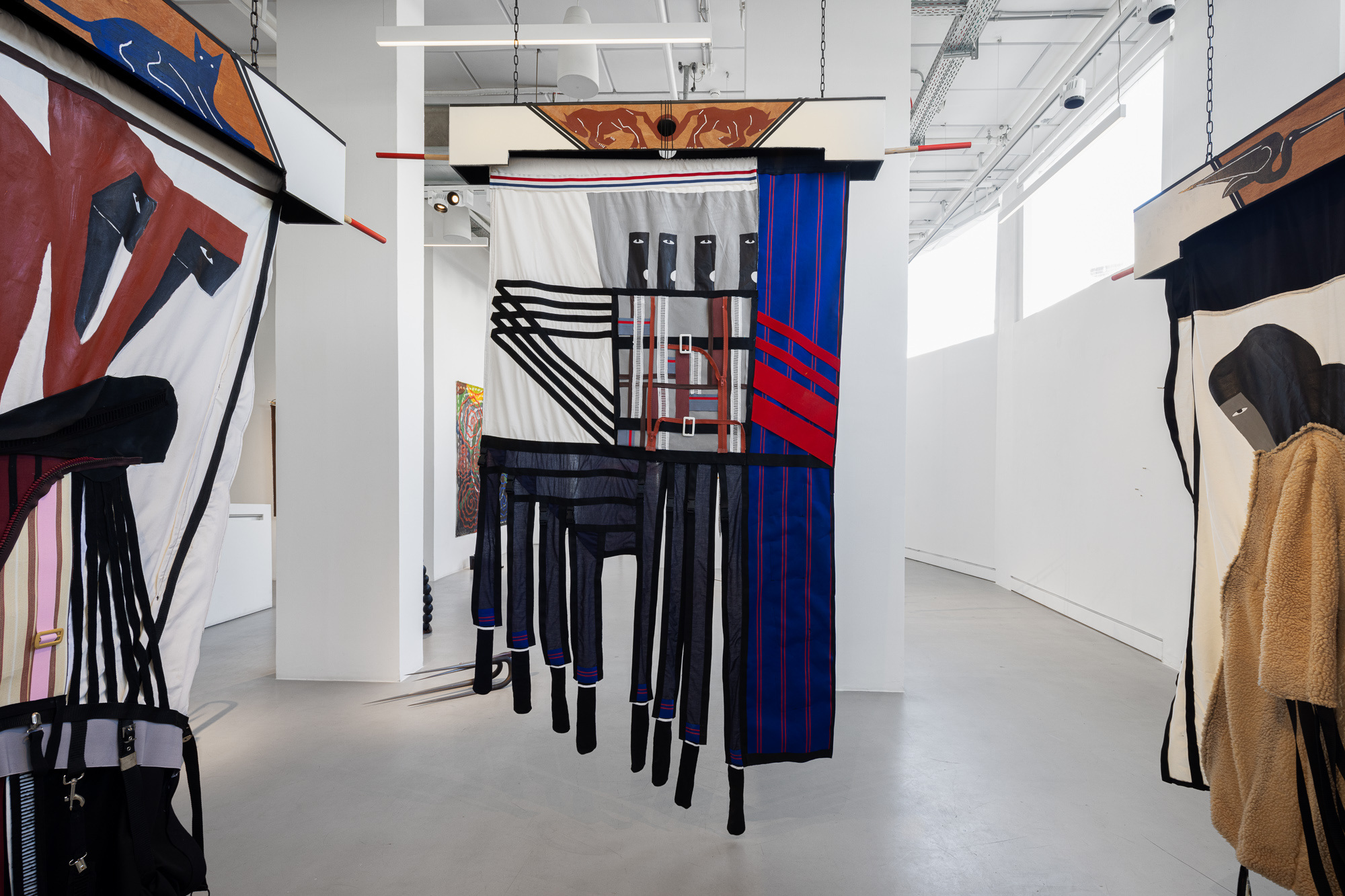
Installation View
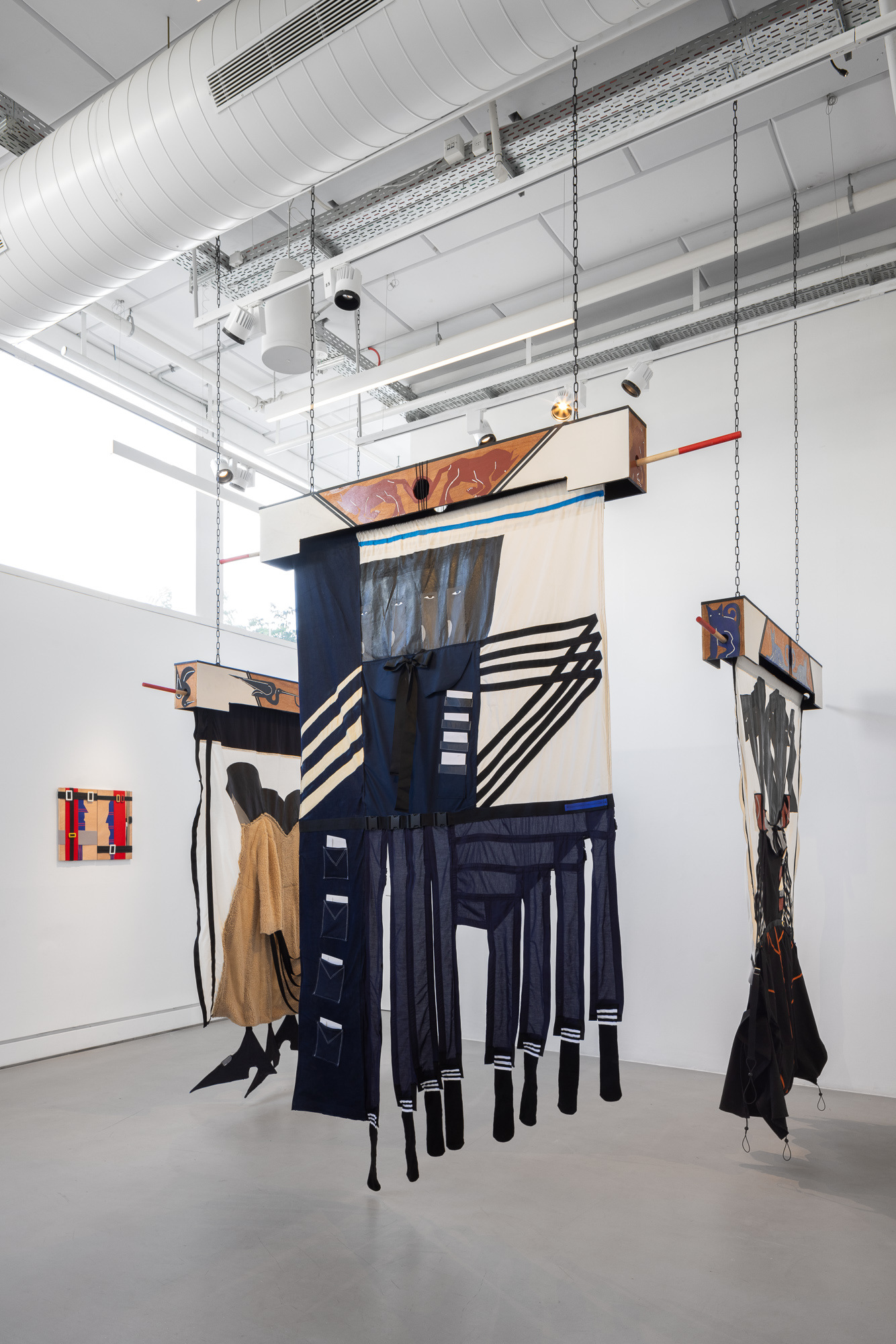
Installation View
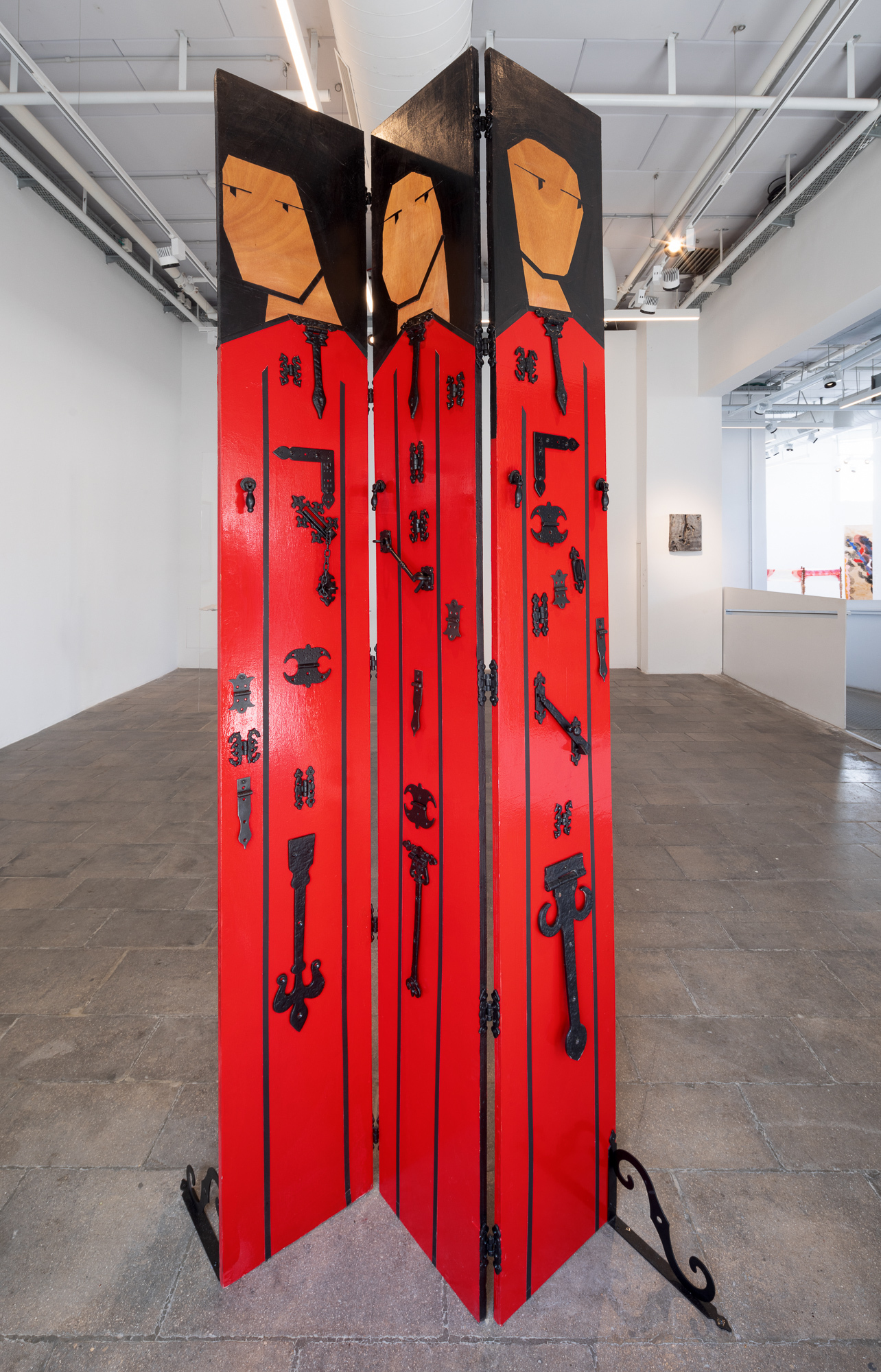
Looking Back, 2024, Wood, acrylic, industrial paint, metal affixings/fixtures, insulating tape, 220X100 cm
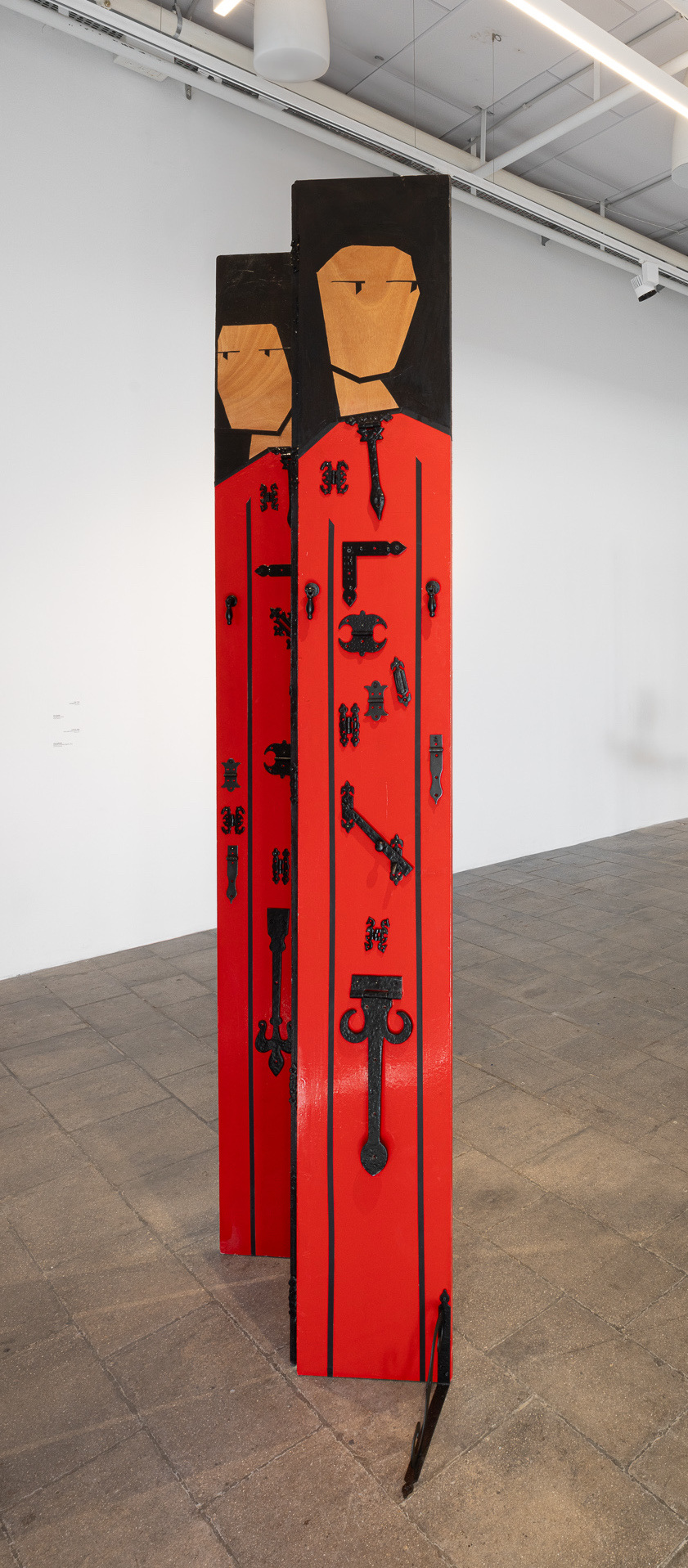
Looking Back, 2024, Wood, acrylic, industrial paint, metal affixings/fixtures, insulating tape, 220X100 cm
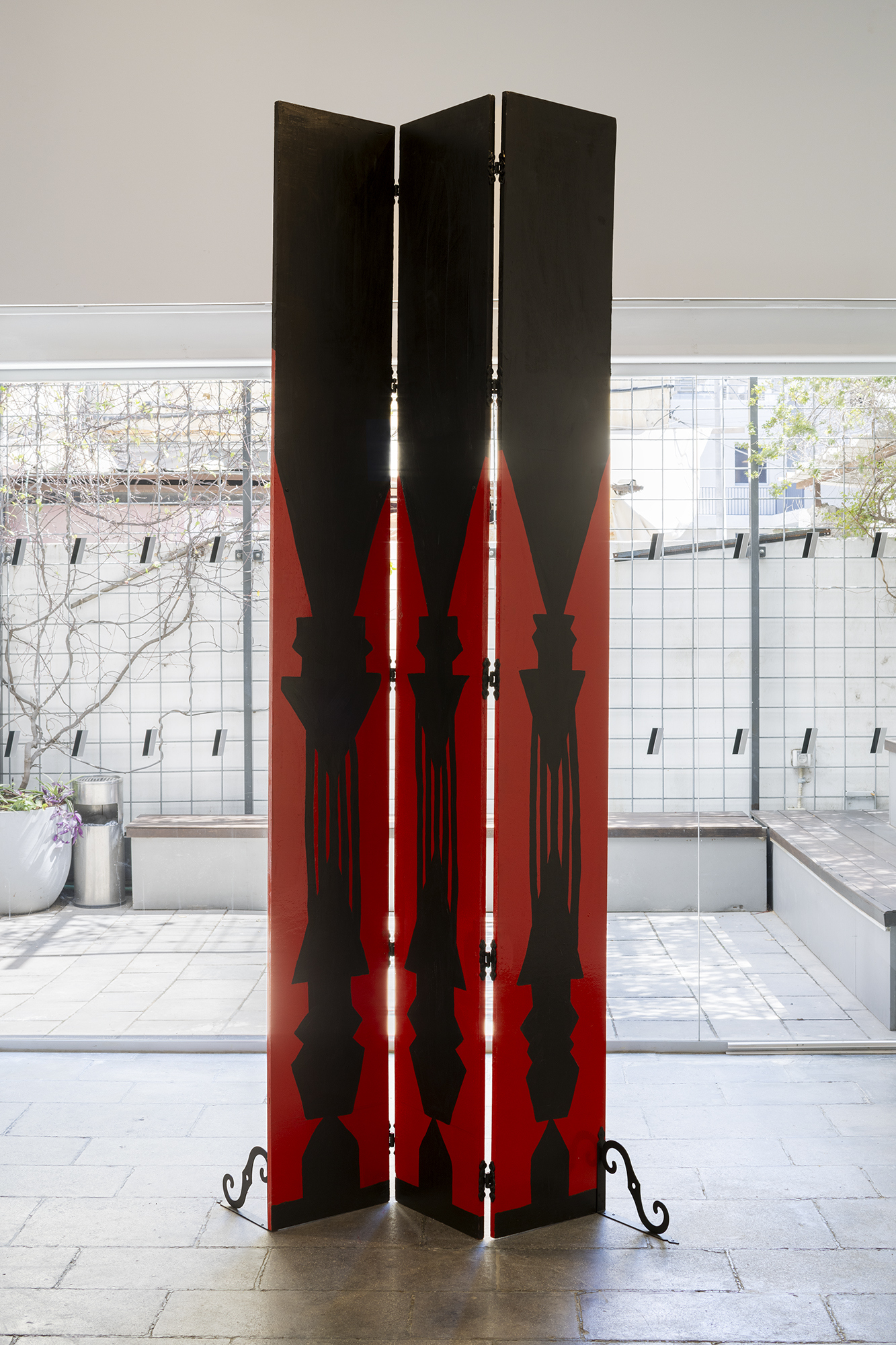
Looking Back, 2024, Wood, acrylic, industrial paint, metal affixings/fixtures, insulating tape, 220X100 cm
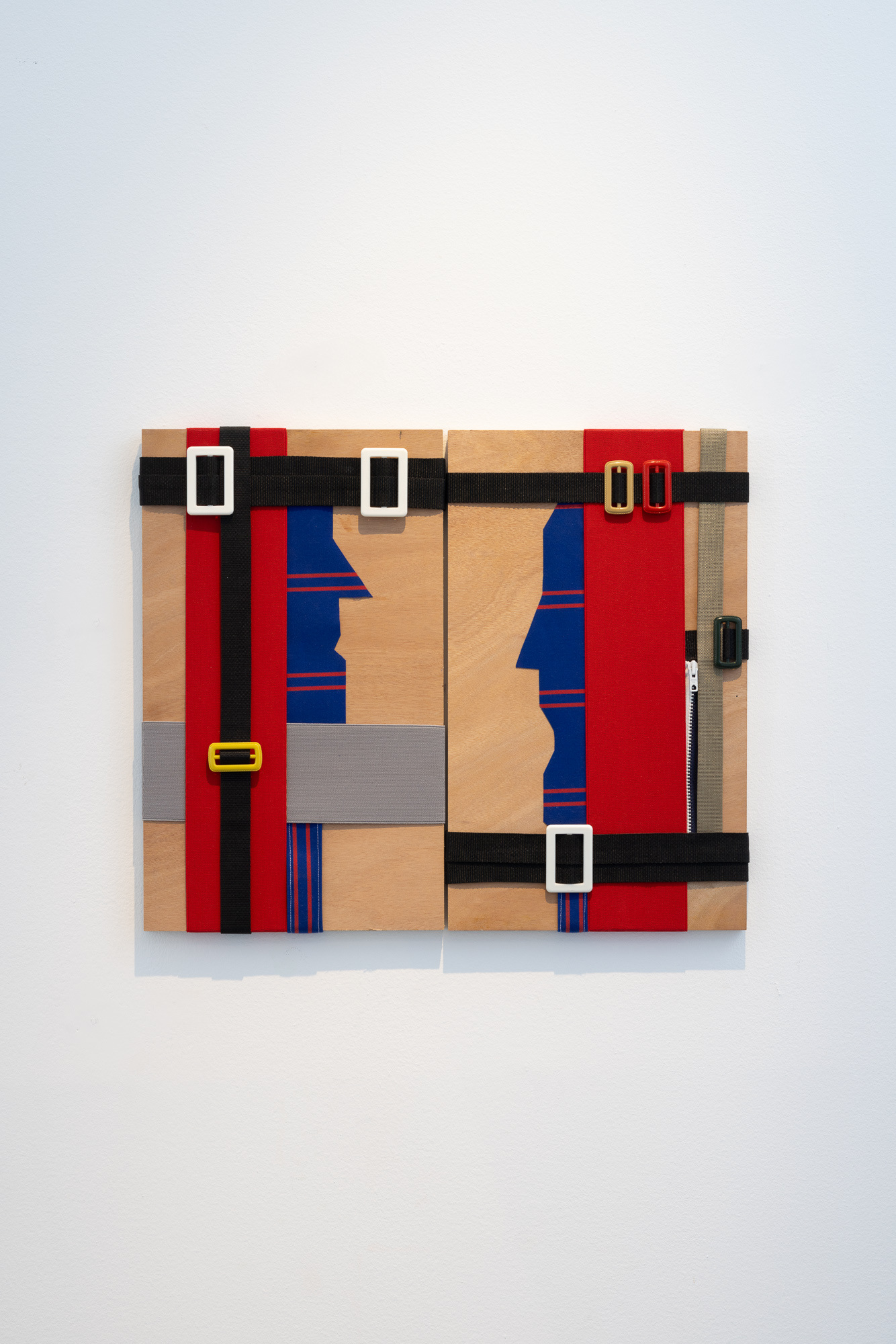
Zipped + Belted, 2024, rubber band, fabric bands, Samson fabric, plastic buckles, wood, 50x30x3 cm each
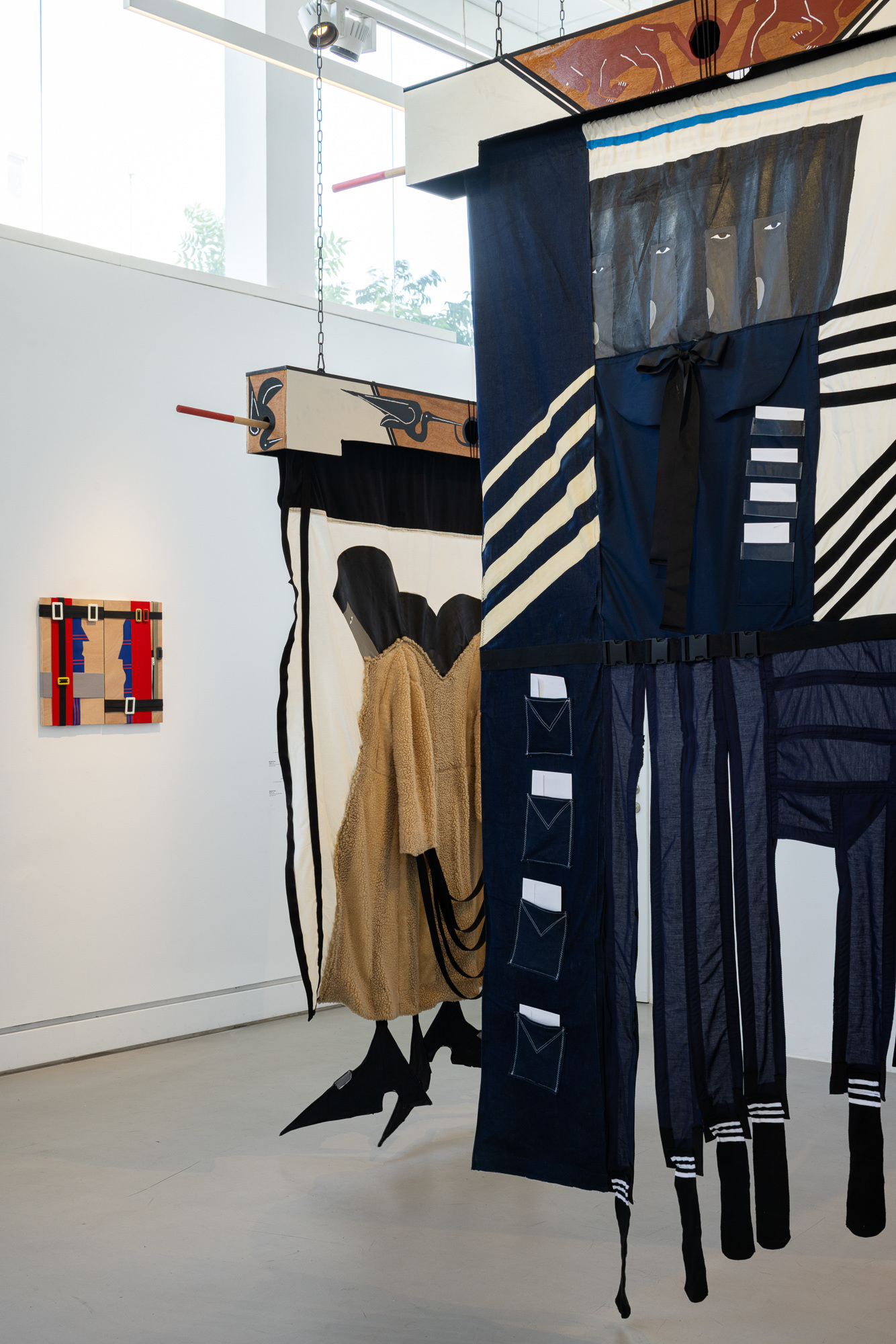
Installation View
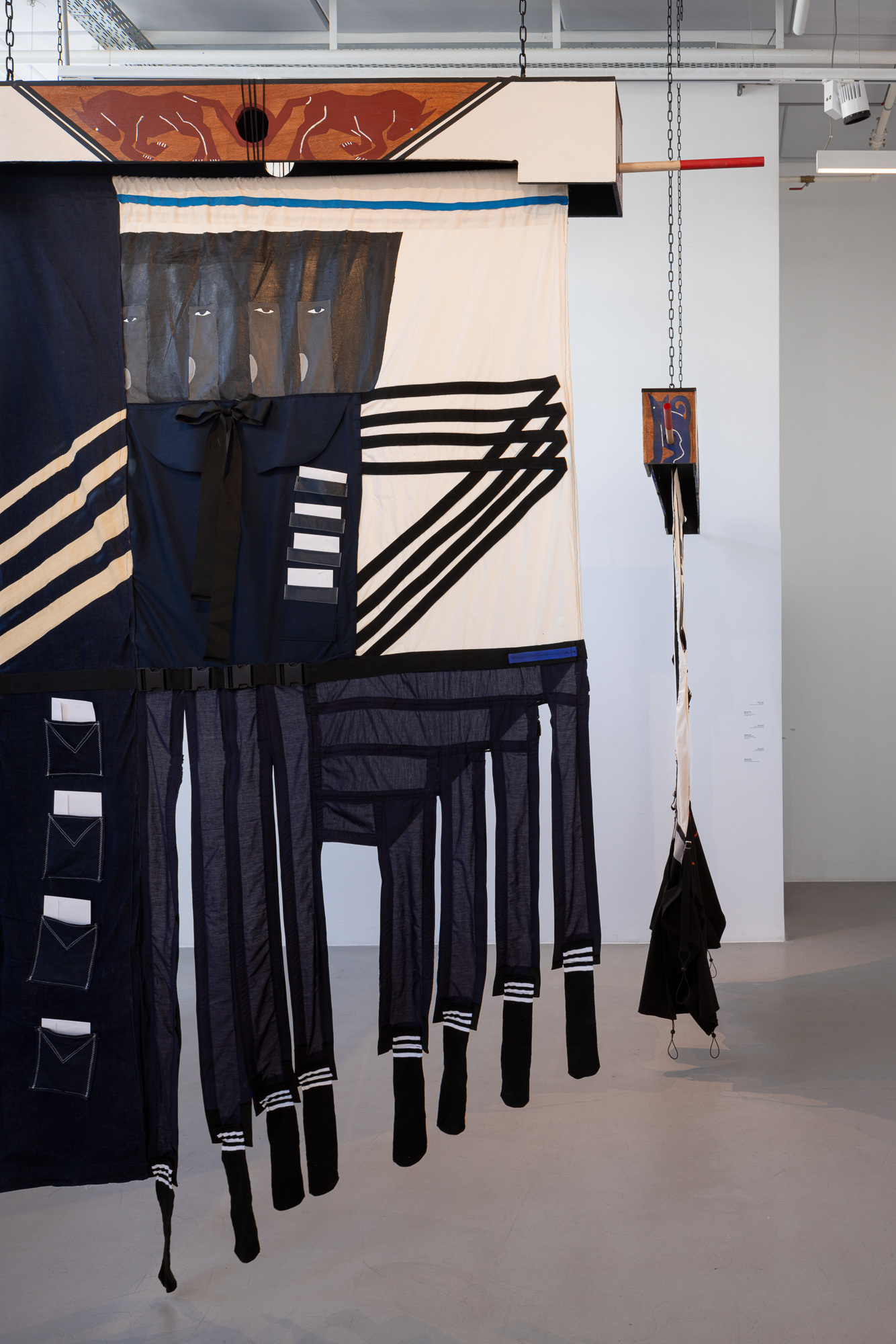
String Quartet, 2024, Fabric, wood, acrylic, zipper, rubber, plastic buckles, 220X150 X15 cm
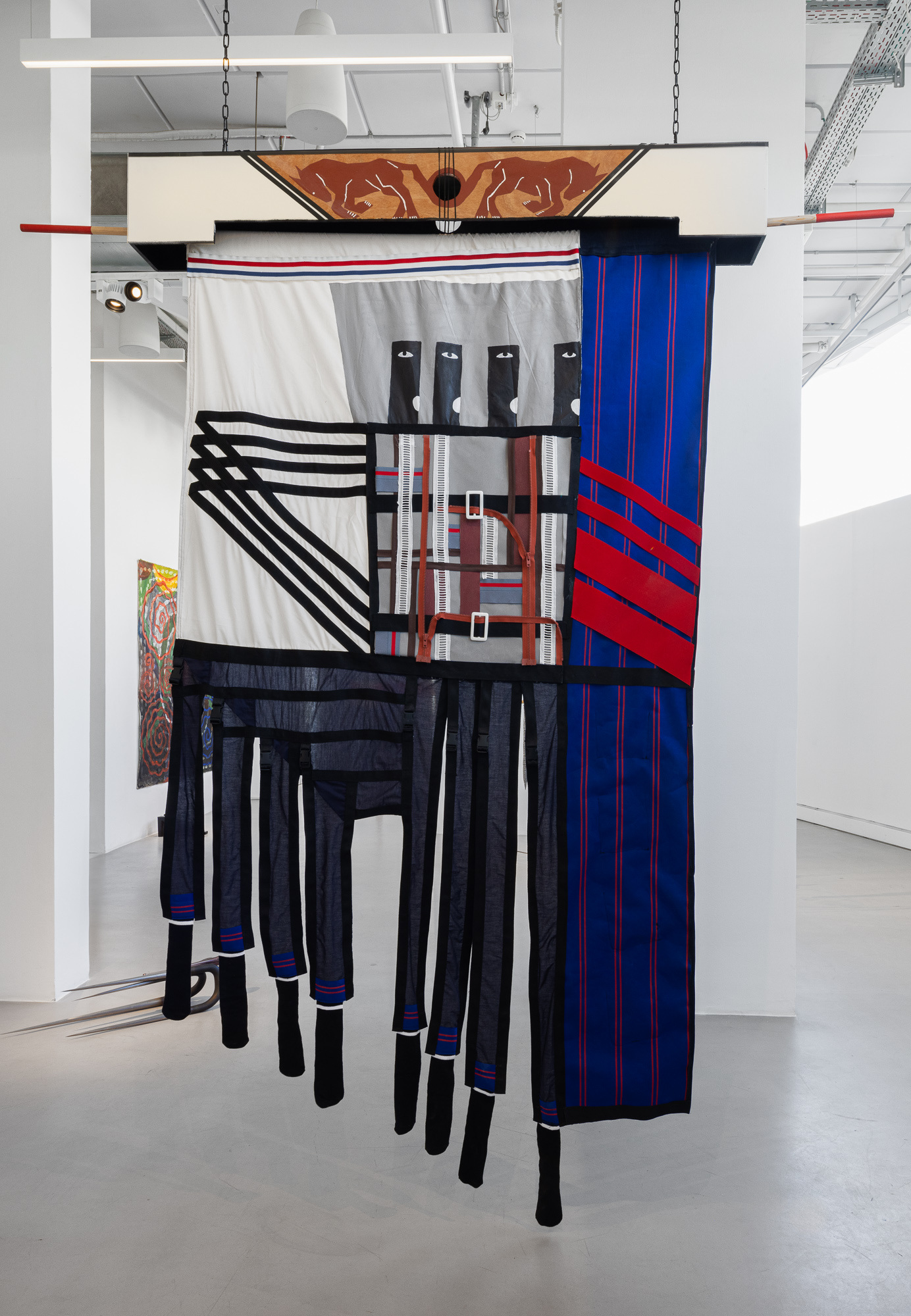
String Quartet, 2024, Fabric, wood, acrylic, zipper, rubber, plastic buckles, 220X150 X15 cm
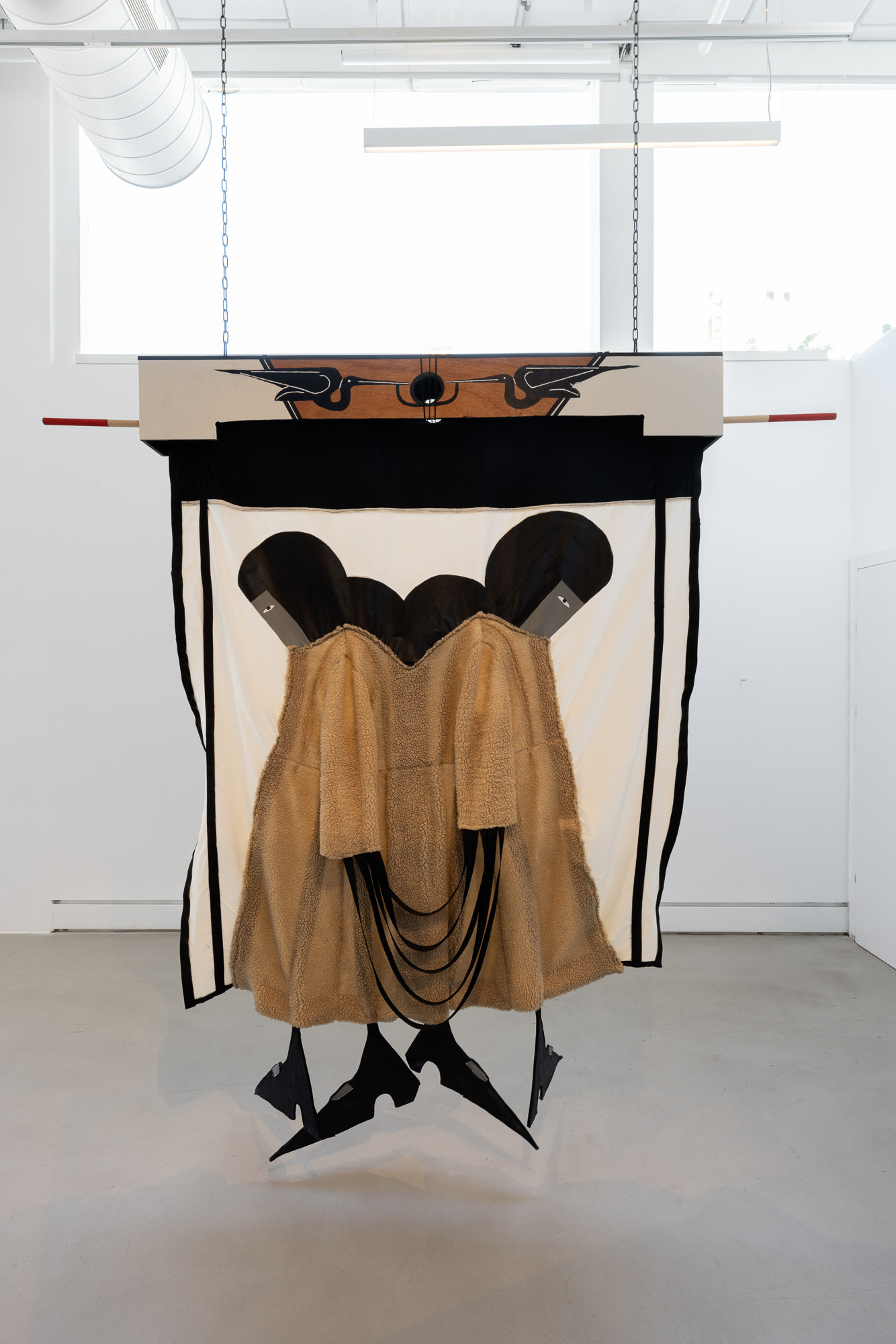
Duet, 2024, Fabric, wood, cardboard, buttons, acrylic, zipper, rubber, 220X150 X15 cm
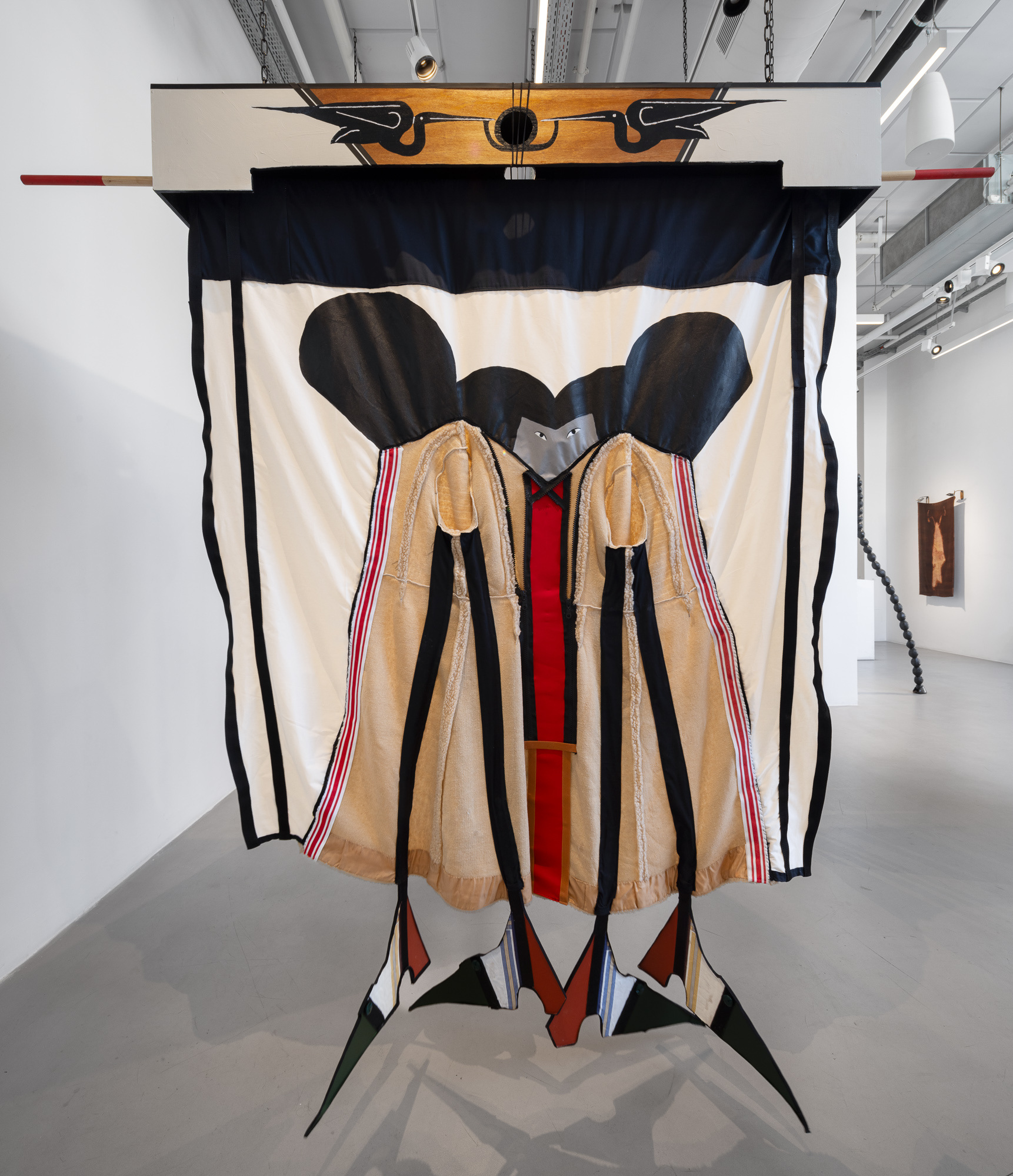
Duet, 2024, Fabric, wood, cardboard, buttons, acrylic, zipper, rubber, 220X150 X15 cm
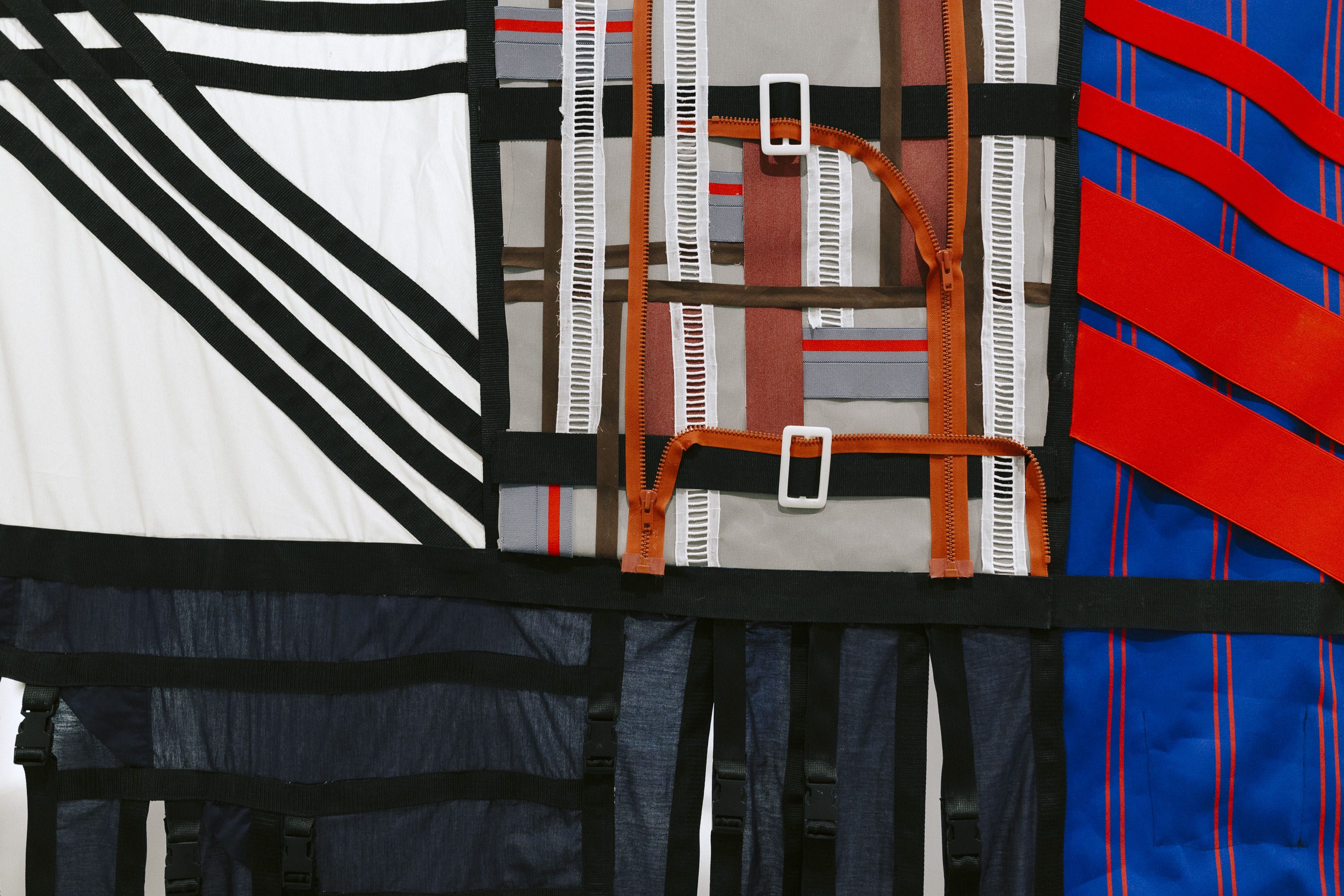
String Quartet, 2024, Fabric, wood, acrylic, zipper, rubber, plastic buckles, 220X150 X15 cm
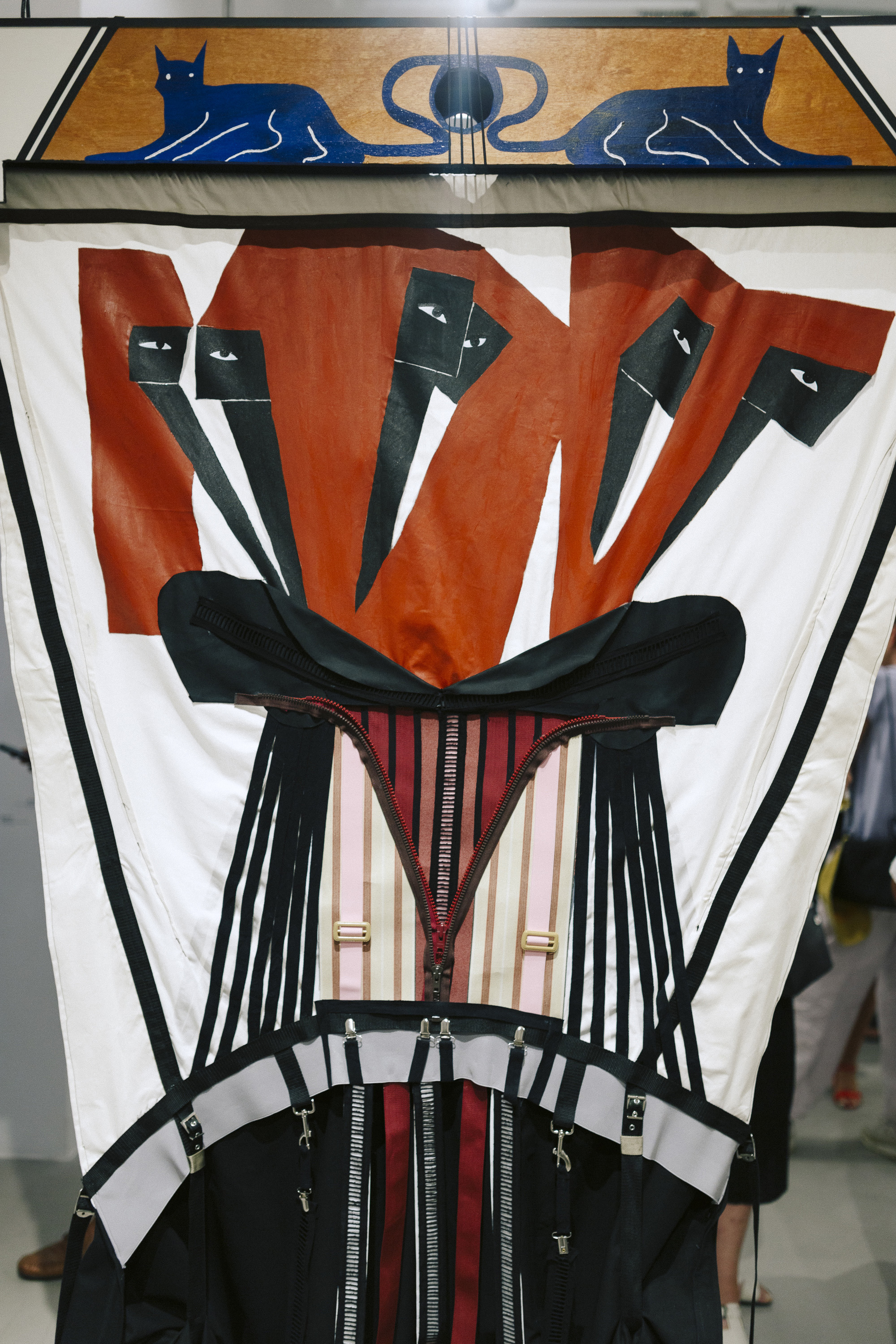
Six Cymbals, 2024, Fabric, wood, acrylic, zipper, rubber, buckles, 220X150 X15 cm
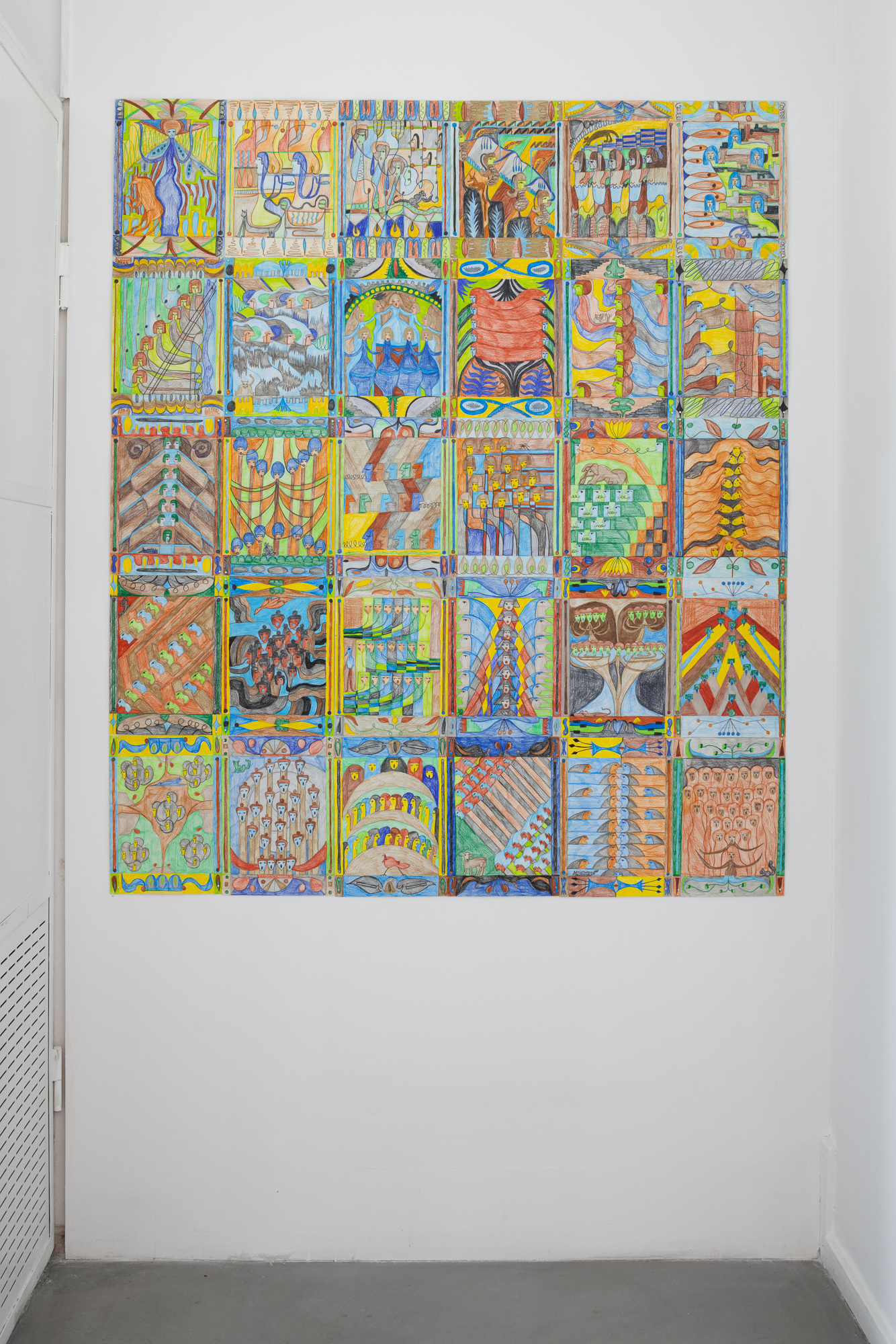
Choirs, 2024 (series of 30), Pencil on paper, 29.7X21 cm each
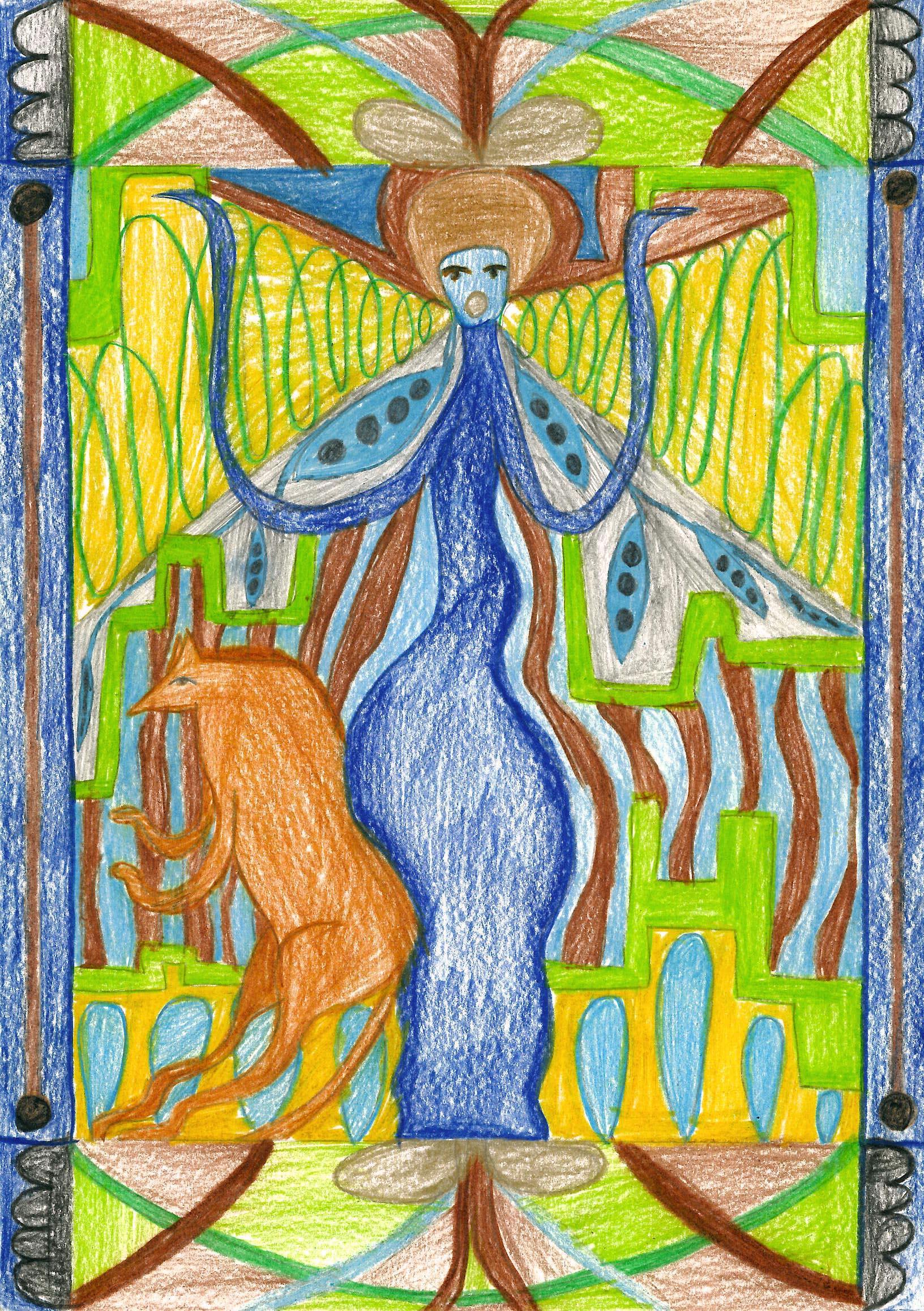
Choir #1, 2024 (part of series of 30), Pencil on paper, 29.7X21 cm
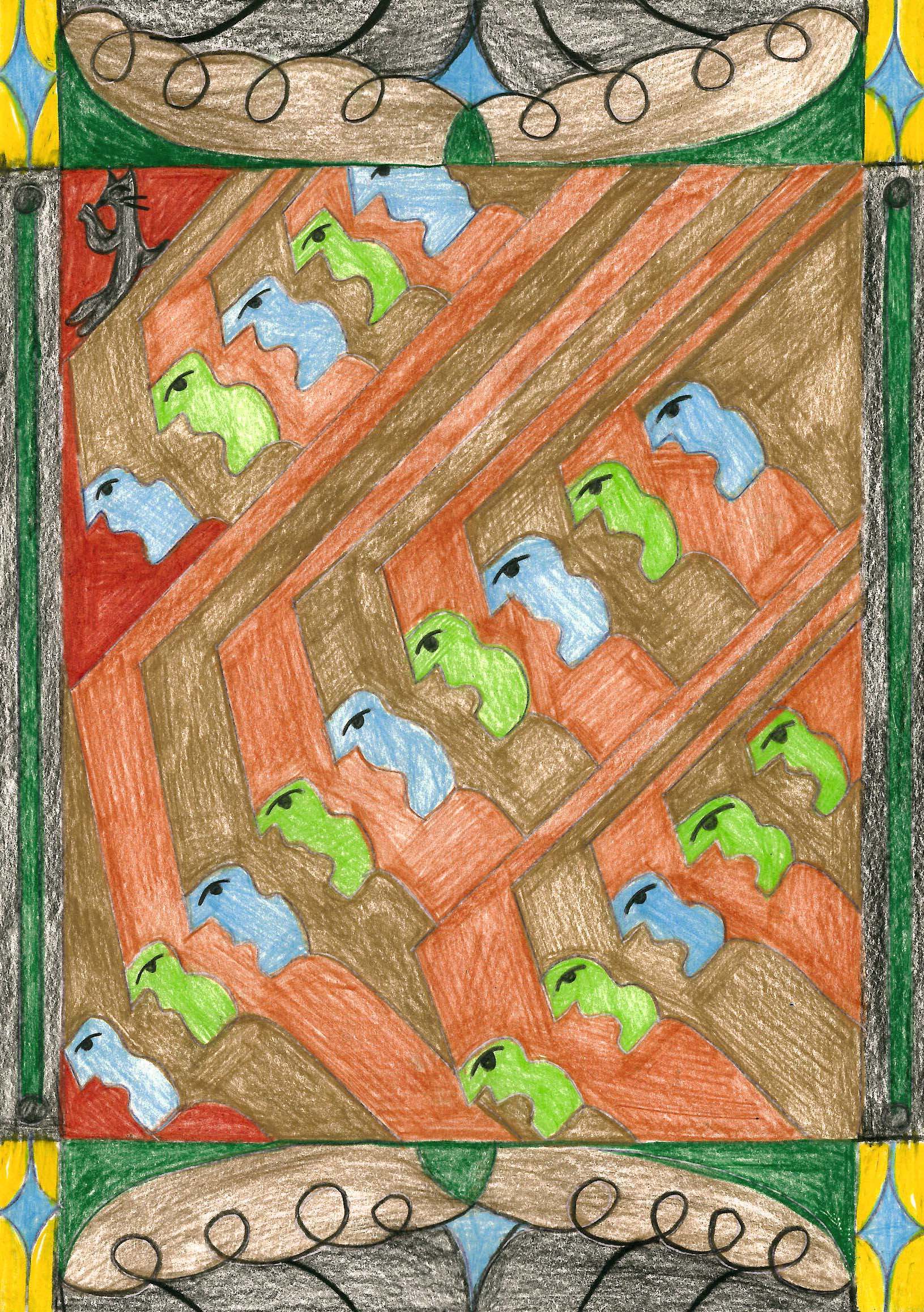
Choir #19, 2024 (part of series of 30), Pencil on paper, 29.7X21 cm
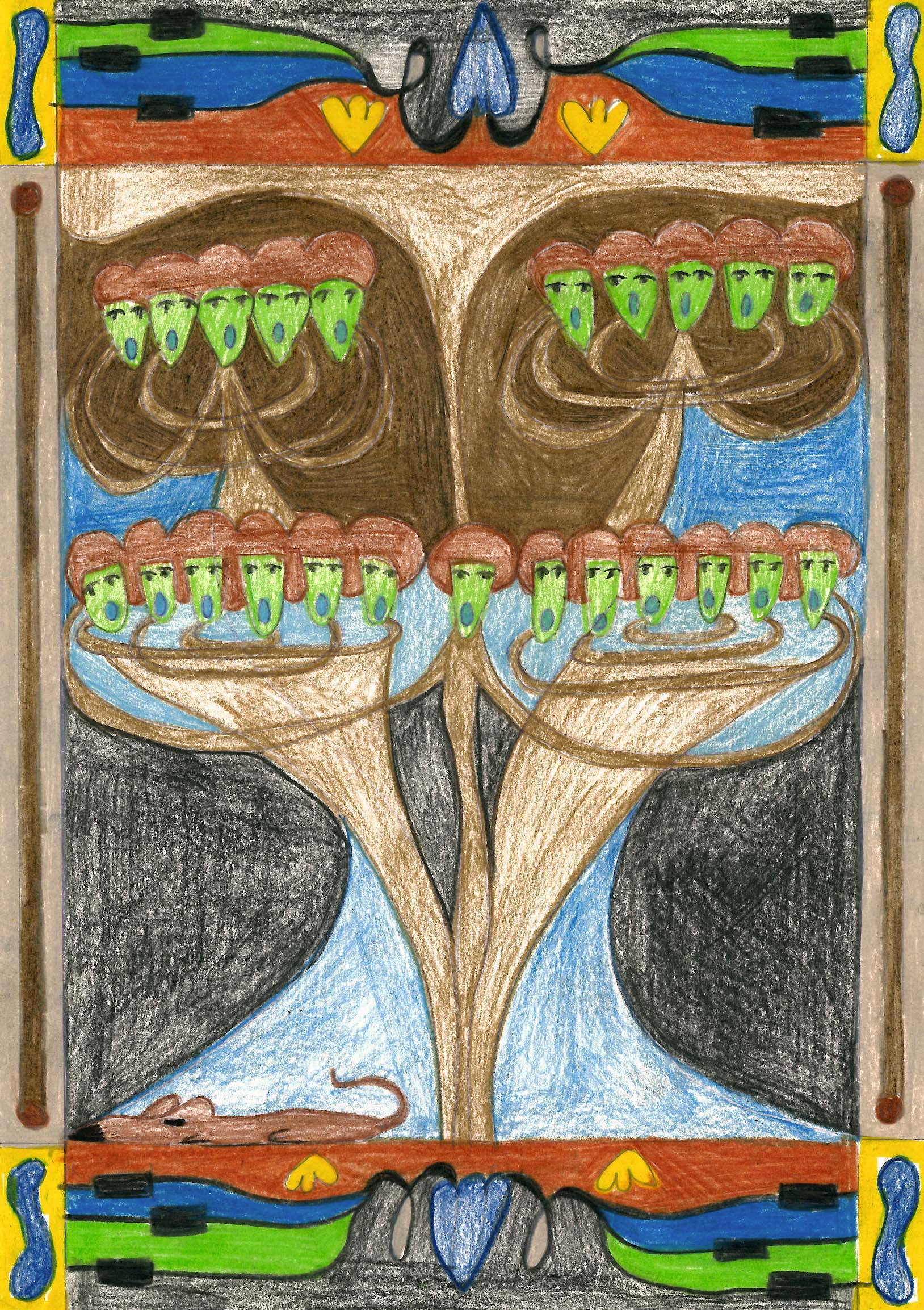
Choir #23, 2024 (part of series of 30), Pencil on paper, 29.7X21 cm
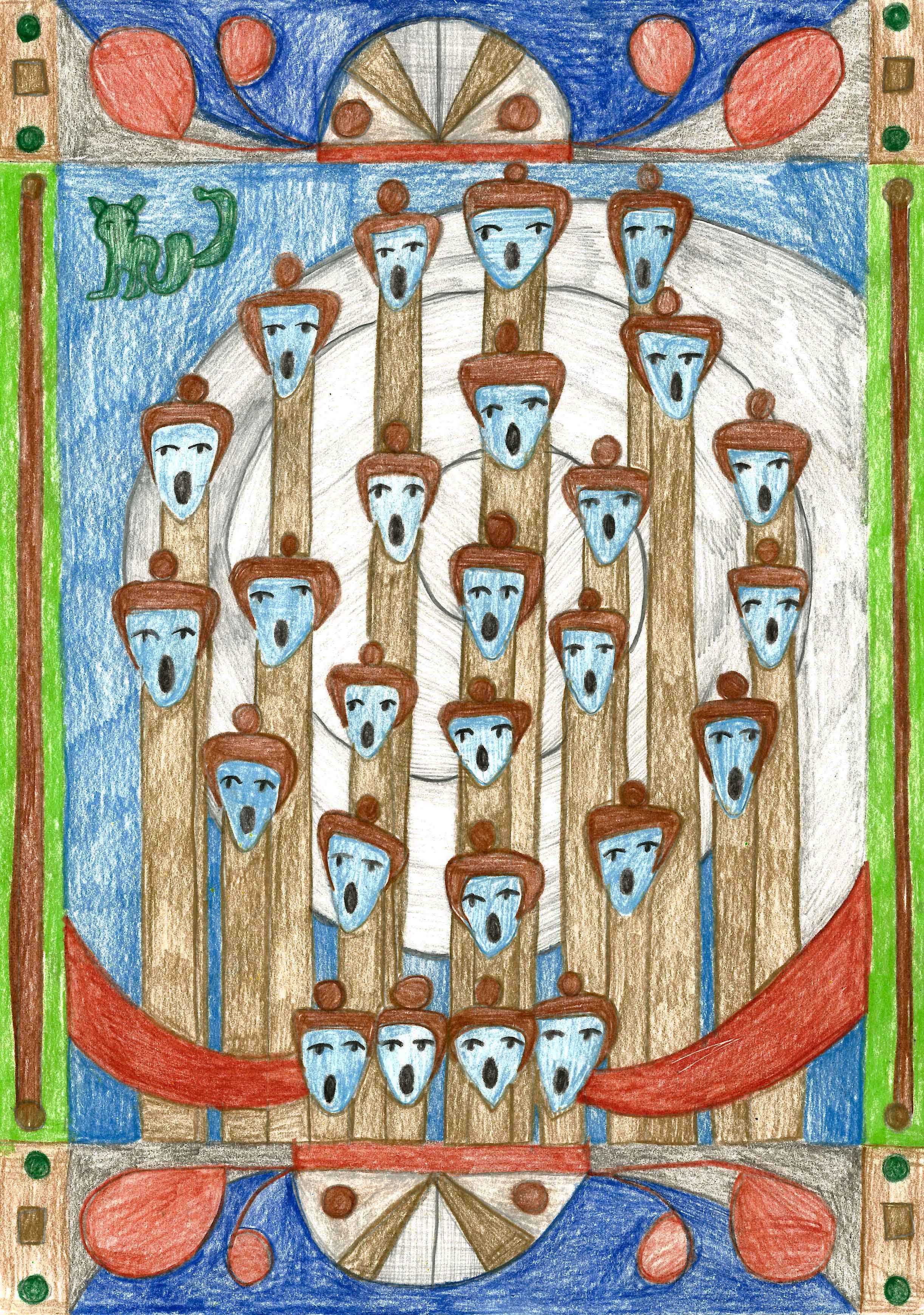
Choir #26, 2024 (part of series of 30), Pencil on paper, 29.7X21 cm
Listening closely to Ruti de Vries's works, one can hear the music emanating from
them. Like a big sigh coming from the bottom of the diaphragm and connecting the
internal passages of the body with external cover, like the lining of a garment
embracing the human belly, de Vries's textile works connect deep feelings with the
outer shell, with garments and materials.
Patterns repeated in a recursive fashion, like arithmetic sequences, emerge
from what appears like a blend of colors and shapes, dictating a rhythm. Groups of
figures—a couple (duet), a group of four (string quartet), and a sextet (the six
cymbals), are sewn into each other and lean on one another, until they become a
musical instrument of sorts: the sounding board hangs above them, the pieces of
fabric become strings.
In the series of orchestra paintings, the number of singing figures in each
painting increases: from an individual to a duet, from a trio to a quartet, all the way to
a choir of thirty. The voices intertwine, generating a visual canon, which evolves from
one figure to the next to form a joint work. De Vries explores the inner voice and the
aesthetic dynamics of sound. She follows the logic of the body's resonant movement,
and by dividing and duplicating forms, she tries to synchronize and regulate the
jumble of voices.
The three figures who make up the curtain at the entrance to the gallery also
confront the tension between order and chaos, between liberation and control. One
side of the curtain is laden with hinges and handles, locks and bolts. Its other side
suggests that we look at the absence as well. The load of contours produced by de
Vries is also made from the void surrounding it and filling anew every time; from the
heretofore hidden patterns surrounding us and their potential space.
For de Vries, clothes are not only a protection and a buffer from the outside
world; they are also an array of signs and symbols, a way to communicate with the
universe—to present feelings, mark boundaries, create order. Layers upon layers of
weaves and buckles, zippers and paintings, myths and legends come together to
form ensembles of figures extending over monumental canvases. Fashion is not only
a social dictate for them, but also a statement which allows individuals to set
themselves apart from the group and rejoin it.
Vardit Gross




